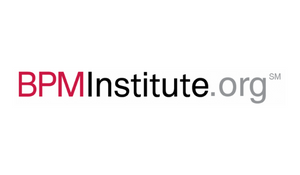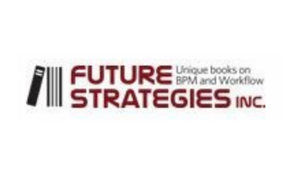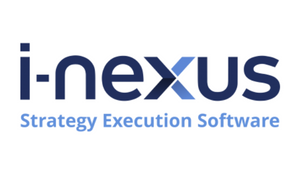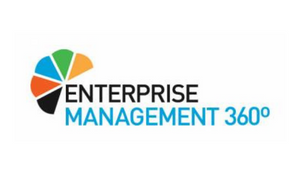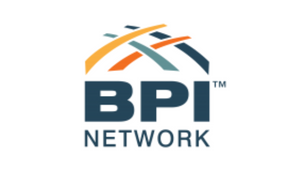

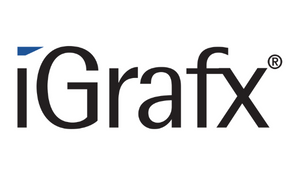
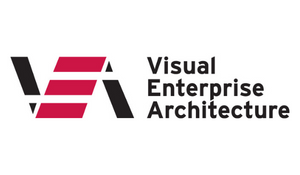
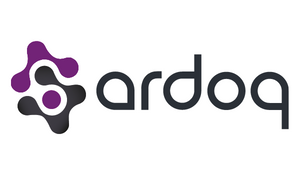
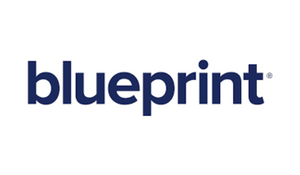
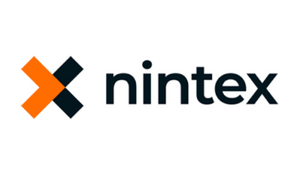
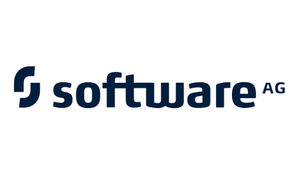

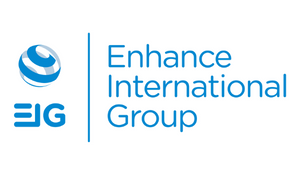
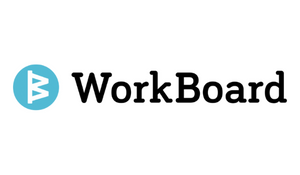
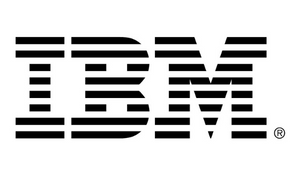


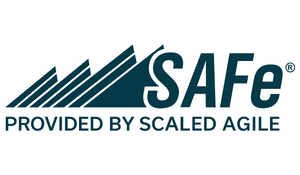



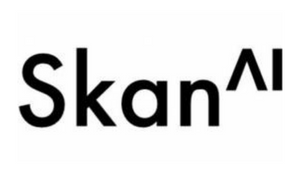

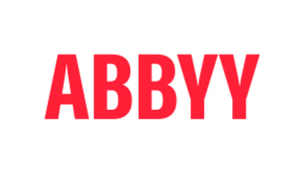

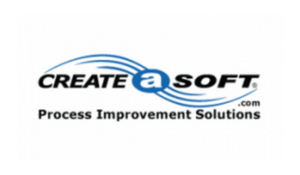




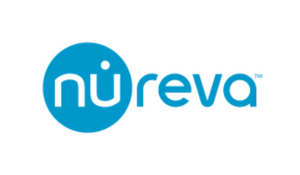
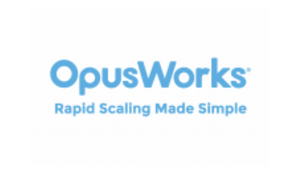
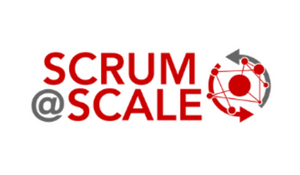

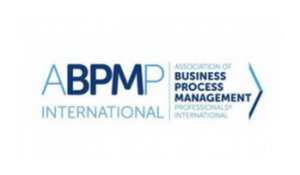
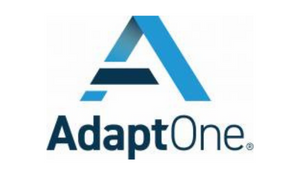
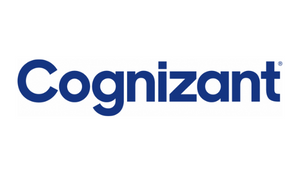
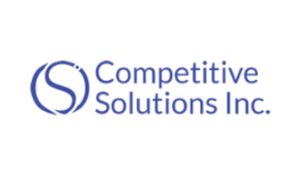
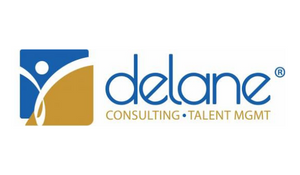

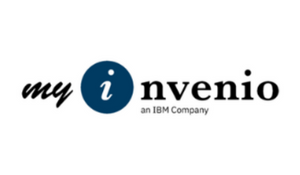
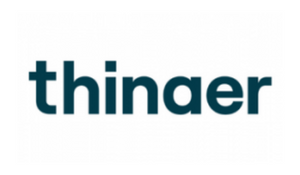
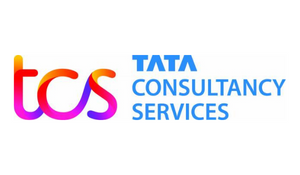
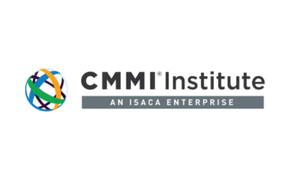
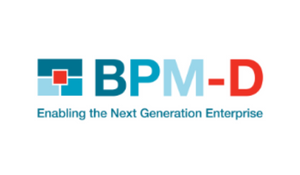

Courtesy of DFCG's .., below is a transcript of his speaking session on 'How CFO’s Can Best Leverage Intelligent Automation' to Build a Thriving Enterprise that took place at RPA & Intelligent Automation Live Virtual Conference.

Session Information:
How CFO’s Can Best Leverage Intelligent Automation
Session Transcript:
Now, if I may, it gives me great pleasure to introduce my next speaker, Armando Jelly.
Now, I'm on, has a long international career in operational management, finance, and international business development Hello, amount, how are you, loh, Brian, thank you for the introduction.
OK, and, as well as working with the likes of IBM, GE, PWC, Grant Thornton and HP on leads, the French CFO Network. ... International is the Chairman of the RPA, Intelligent Automation Shared Services and Outsourcing Committee of that CFO network, which has more than 400 top financial executives. So, I'm incredibly grateful that I'm on, just had the time to join us, please use this opportunity to enjoy his presentation and questions, please for our moms and really pull out his expertise, so, amount, with that. Over to you.
Thank you, Brian.
So.
Let me see.
So boom, route from Paris. So it's the afternoon here.
So Bonjour.
Good morning, And good afternoon, to all of you. It's a pleasure to be with you today.
And so, as Brian mentioned, I am going to try and share with you the learnings of the committee and cherry as part of the the French ....
We like to share our experience good and bad. And we have this think tank of about 400 people.
And of course, the topic of the day is RPA and ....
So you might want to ask why why RPA?
And also share services in my title, is because, as you may know, RPA really started in the, in the finance shared services centers, where we do have lots of volume of data where we have lots of people working and where we have a stable processes.
And we started discussing RPA as part of the future of shared services.
And of course, you're welcome to join the team, the s.d.g. team, to share with us. And if you want to write articles about your experience.
Be my guest. We took articles from any writers, every month.
So just to start, let me give you, maybe like a quick overview of what we think about RPA.
RPA is a great opportunity to start automation, but it's really a great opportunity for RPA vendors, founders, analyst consultants, or ..., and supplies carriers.
And what is well done?
We do love we do get more efficient processes were compliant processes.
We do get reduced cost reduced FTEs instead of, know, sometimes we don't say, We're reducing FTEs where we are saying, we're getting back hours, two to the business. We do get happier employees and the CFOs are in business, more satisfied.
We've improved the and automate the processes.
So why am I saying that? We should maybe be cautious about RPA in automation.
Because it's a big fad.
The seller mode, as we say in Paris, this market is growing quite rapidly, both for software of, of the RTA vendors but also for the services around the RPA.
And we do have lots of expectations, maybe too much. We've been told that with RPA, we can reduce our workforce but 80%, that it's very cheap to put in place. We don't need IT. And you can start tomorrow.
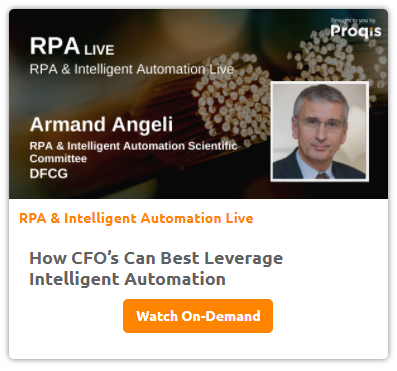 So this is what we've been told. But this is not really the truth. So we'd love to, to be cautious.
So this is what we've been told. But this is not really the truth. So we'd love to, to be cautious.
But. when we do it well, we, we have, we do have good successes.
And that's what I would like to say here.
So why, why, why RPA?
Why automation in the finance area?
Is because most of our companies, most our CFOs, they want to transform the companies, they want to transform the finance function. And they want, they want to bring digital transformation.
And so how do we do that?
If you look back, maybe, like 20, 25 years ago in Finance. We started by centralizing.
We we created, what we call the CVC Centers or at least mutualized teams.
Then we say, Oh, well, let's maybe relocate the people and in service centers in maybe let's outsource them, Let's put them in a different location.
Next, we move to sort of ... processes.
Uh, we have loss of procedures, which allowed the duration, Then we optimize with the, what we call Lean six Sigma processes.
And, more recently, we started digitizing it now, automating. So this is this has been the journey between centralizing to automation. And you can see, depending on where you are, we're able to, to to become more productive.
By a nice, by nice percentages.
And historically, as I just said, we've been playing, we all play are leveraging people, then we, we leverage processes.
Improving processes, flus, six Sigma, and so on.
Then came technology. So we said, whoa. Let us say use the ERP is less you use cloud. But this was not enough.
And we moved into robotics, and RPA, and the likes in the most recent years.
And as you can see here, robotics has been one of the main key leverage key lever to transform the finance function.
And I'm sure you know this, this picture from our friends from HDFS. The idea is to blurry limit between the front office and back office enough, what, what we call one office.
And I per connected, connected company in with the Nobel Papers and the data are flowing from back to front with seamlessly.
When we asked my, my colleagues in Finance, so what is the top priority, they will ask you right away.
Process optimization.
Actually, now, right now, they would say, because of coffee that we say, my first priority is cash, and while cash was, maybe on the list, it becomes now the top of the list.
But, uh, improving cache can also be obtained through process optimization.
So, in any case, until most recently, the top priority was process optimization.
And when you asked the CFOs, uh, where do you think you should invest? And, ... G is going to improve a furnace performance.
35% of the CFO will tell you, I want to use RPA because I'm told, oh, I believe this is going to be the top, the most rewarding investment for transfer my finance.
And of course, then come to big data, artificial intelligence, BI and so on.
But first is RPA, at least at what's the CFOs are convinced of?
And even the next fears, the CFOs all think finance accounting profession. We will benefit for RPA from data science and artificial intelligence.
So, it's uh clear situation, and even going further, when we asked them: where are you really investing?
They will tell you that they, they invest mainly insight into accounting for automation fighters in accounting and and GBS.
I mean what the what we call the new breed of shared services centers, GBS, global business services.
 OK, so, now the question is Automation, What do we mean by automation?
OK, so, now the question is Automation, What do we mean by automation?
Because we used to have Excel and we could do macros wever with Excel and it's similar to Automation.
Then we, we asked ourselves, what the ..., I mean, ERP was supposed to be the, the best automation tool because we've ERP, you do, you can, you can read everything in your company and then came, and then what about RPA?
I mean, process automation, what about these new AI tools? What about these are dirty called specific applications.
So, you see, you, actually, right now, it's there's some kind of confusion about automation, because it can be all of the above.
And when CFOs are, actually purchasing departments are asked to, to go for RFPs force. So packages or automation, they tend to mix everything.
Microsoft ERP, RPA, nish, vertical applications, so this, and we need to be careful there, because these are different types of solutions.
And, again, what I would like to see here, we, robotic robotization, digitization is great, but we, when we should not forget, that we should first optimize processes.
This has been one of the, the issue in the past few years, as it continues to be an issue, we jumped too fast into automation, without cooking first, what, at what we can optimize, or actually even eliminate in terms of processes.
So technology has been a great catalyst, but they still forget the reviewed, the assessment of processes.
And when we say, OK, let's go for a robot, RPA. So let's ask ourselves. What is RPA, I'm sure you all know.
But, just, as a reminder, reminder is kind of a stupid micro just mimicking what someone is doing on this keyboard or is or keyboard.
It's nothing, nothing more than that.
So, it's a, it's a software, I mean, again, mimicking what people are doing.
And so, so the people typing on keyboards, they, they are working with applications with the screens and they, and so this RPA software, it just Mickey what they are doing. And meaning that when we go outside, when we do have exceptions, then the robot doesn't know what to do.
So when we, when we have exceptions, when it's the way it is, you need human judgement, then you cannot, you can use basic RPA, and so we need to go what we call to, what we call Cognitive Computing.
Again, I'm sure you know what it is, You know, the difference, but I just want, it reminded you, that when it comes to deciding human judgement, when it comes to playing or using associate data, RPA cannot do it.
We need some new breed of tools and we call them cognitive RPA, or cognitive, or, uh, yeah, cookie or AI, actually, or integrate automation.
The good news is, we, most of the processes in our companies, can be automated in some ways.
Whether it's finance, here, you can see the sub processes, and, we have street the big process into sub processes.
And you can see that part of, almost all of the processes can be somewhat, somewhat automated, what this is finance, but the same for HR.
It's the same for IT.
Here, the most important is to look at colors.
And, you can see that most of it can be automate it somewhat.
And again, here, when you split by sub processes, you see that the important is not to read the sub processes is to see that you have a, you have dark colors in all the processes of our companies, finance IT, and HR.
But I would like to maybe to stress the fact that if an a F and A fight, it's an accounting after banking, actually, an insurance as being the main spots, the main support for automation.
And you can see here, the darker orange color, the first column, FMA.
-1.png?width=600&name=Email%20Graphic%20Virtual%20Conferences%20(4)-1.png)
So, we, we are the finance people, offense, companies, finance organizations are the, the key target for automation.
And actually, uh, here you from Bloomberg, it seems like up to 94% of the US accountants and auditors jobs are likely to be impacted by automation.
So, here, we're seeing impacted by automation, 24, 94%.
But we go, when we go now, deeper into the finance and accounting processes, depending on whether they are sectional like caches, burst mode, like payroll, you can automate up to 70%, but when he comes to more processes, more closer, to strategic decisions, to management decision, then we go from 70%, the bottom 20%, at the top of the pyramid.
So, sure, meaning that not everything can be automated, and it's a misconception that RPA will automate all finance and accounting jobs.
Actually, what I would like to say here already, is that our experience is that we can automate maybe 10 to 15%, of the tasks of an employee in front of his PC is a RPC.
Those 80 or 90%.
And which already, which means already that if you only eliminate 10 to 15% of the activities of a person, that person can do. Things, which are more interesting, maybe can have more coffee or tea. But it is still, there, It is the disappear.
So the concern is a big misconception that RPA will eliminate jobs.
And, uh, maybe I want to jump to conclusion, But I can already say here, that unless you review your processes, your ...
processes, you will not get much productivity.
But if you do, ahead of time, review your processes, reduce your processes, You can get up to 20 30 percent of productivity for finance.
And actually, same for maybe other functions, but for finance that you can reach out to 20, 30 percent of productivity by reviewing processes, not by implementing RPA.
And also, something to keep in mind, is if there is a big confusion between the task activity and processes, we, we say that the robot RPA. a RPA means process, right.
But, actually.
But actually, the, when we actual work, we do, is not work. It is automating processes, but automating tasks.
A process a process is, lots of tasks put together and not only not, let us simple processes.
Let me total process.
And just to clarify what we can automate a simple task like creating says odor like, going into, into the web, to get data, to confirm.
And a client, or an supplier information, that's very basic.
And, but when we, when we add more more features to the robots, the robot becomes more intelligent.
And, and we get into these cognitive robots. And why, right now, we are at the RPA level and RPA. As we all know, we have these. We stop suppliers called Blue Prism Automation, anywhere and UI path, and you, a bug being the current key to the leader.
And, and the way you go from simple macros to cognitive to AI is a buy from by going for a rules based to gender bias based activities, which can be replaced partly by machines while, when it's very simple and only human can do it.
And again, here, in red in the middle, you see the trend from RPA to cognitive computing, to artificial intelligence.
And this is based on the, on the, on going from, looking at the bottom here, going from structure to unstructured data, and at the top, going from front triggers to dynamic language.
And so, when you get when you are unstructured data, when you, when it's all, for example, when you have a rules based on the dynamic language, then you are the AI IPA is way before that.
And that's why, now we are moving from simple RPA, which we call attended RPA to an attended, meaning, mostly working on servers.
And then don't need you typing keying or starting the robot, it's working in a server in the background.
And then, when these robots, they talk to each other, it becomes more autonomous on the server.
And when you have a feature, then you get, what do you call cognitive RPA, or you reach a digital nation. But we're not there yet, we are in the middle.
And just as a reminder, I'm sure you know all of that is good to know that we are, we are starting from unattended, attended robots, and going to virtual agent to two platforms.
And because of that, we have lots of lots to choose from, and I mentioned before the three vendors.
But you can see that we have loss of vendors all over the place, depending on, which, on the list you talk to, the classification, it can be different.
And, and these vendors of, I've seen change throughout the years, and the leaders now.
Not, actually, again, you are powerful machine. We are Blue Prism, and Work Fusion.
So these are the leaders for RPA. But we see now, what we call the low code applications. Where you can do the, it's almost looks like RPA. But you can do it yourself.
It's like, Lego, small boxes you put together, and this is a new breed of, of automation.
So we go, for now, from low code, to RPA, to cognitive RPA.
And when the, when we are, we don't, the older, the budget, when we don't of the real strategy for automation, when we have the emergencies, then we see more and more, what we call a robot as a service, automation as a service, where you don't even need to buy the license.
.png?width=742&name=Screenshot%20(4).png)
You just go to a third party, and you buy your robot, and which you pay by the hour by the month, instead of paying for the full license.
And the, I think, too, to code the robot and to maintain the robot.
So that's what we see more and more automation or robotic robot as a service.
And what we also see, and here, the example is for UI path, because, you know, it's, it's a leader.
You're, so UEFA, RPA, vendors, VR, within A, this ecosystem of, of BPM, of, artificial intelligence, of the commit understanding, process mining.
And these are, these are a vendor, they are actually growing in terms of functionalities and you see vendors like UI path, adding functionality in process mining, in document understanding.
So, this is how it's evolving now, going from ..., to configure like, PA, to IPA with lots of functions.
And which now we we call now platforms.
So we have gone from, from specific functions to more complex functions. And why, When you see here, on the left, you see a pure RPA for UI path.
When you see that the extraction, like artworks the second from the last, then these are they tend to the functions represented by the vendors.
They need to, they tend to be brought together within platforms and that's why we we went from RDA, meaning like simple automation of what you do on your screen to process automation, and now we call it Intelligent Automation, putting some AI with your RPA.
And, when you put altogether, OCR, AI tools, RPA chatbots, then you of, again, digital permission.
And the next step, the step further actually becomes what we call automation automation platform, sorry.
When you have the tools, when you have the system integrators, even an ERP ease, so that's the, the way to go.
And actually, the RPA has been a great catalyst for the finance function.
It's easy to start with.
You didn't need IT to start your first POCs.
And, so, you finance. people, got used to, to automation.
And now, they are adding all these new functions, automation, functions, process, mining, and as part of a digital dimension, as part of platforms.
And they don't, they're going for permission, working with IT to transform the functions.
And, as I said before, while we, we started Wave, we have basic RPA vendors providing basic RPA, now, a visa RPA vendors and they are grown functions.
And they are now talking about utility automation platform and you see the most of the same guys. You guys, both dimensional anywhere.
Artworks also in this, in this field.
And that's a good summary.
We went from task to spot automation, with more workflows, with more intelligent processes.
two platforms.
Um.
Finance people, they, they, of course, they look at all, what RPA is bringing, but they also want to make sure that they safeguard the investment in Legacy system.
So here, I would like to stress that what RPA cookies you can bring. Which is integrating application applications. You, you have all these legacy, ERP is always legacy applications, don't talk to each other. But now by bringing RPA, they can talk to each other. And this way, you can, you can safeguard your, your assets, you don't have to throw what you add. And actually, you can wait a few years before you replace everything.
So, integration of legacy systems, and also what we see at the top here, employee well-being, finance people, they're happy.
We, we've RPA with these new tools, because it does bring, it does bring employee well-being when it's well done.
So I won't go into the order, Uh, the benefits.
RPA, we all know them, but I just wanted to stress this to investment.
Said in this essence of Guard and, uh, employee well-being.
And here, as I said before, when you look at what RPA as broads, it's only in 1% of cases that we are really looking for the elimination of guilt.
 So we look first at improving customer satisfaction productivity.
So we look first at improving customer satisfaction productivity.
And the eliminated count is not the main object here.
And as a summary, we can say that the finance, people, we are looking at RPA, cognitive RPA, digital donation, to help accelerate your digital transformation, to improve customer experience. That you don't have to work with, with paper. It's you go seamlessly from front to back office.
Indeed, the workforce is more productive.
And sometimes you do reduce your cost. But the main thing is catalyst.
RPA is a good Qatar is to accelerate your digital transformation. And again, all the finance function all the fun of the CFOs.
They want to transform the functions and become more productive.
Something that the the CFOs are looking at is compliance. So RPA does bring automation does, make compliance, but you also know, the good thing, is, that you can use all these tools to automate your, your business controls, your internal audit, external audits.
So RPA as being a, great, it's been a great leader to improve compliance and, of course, speed, auditing and of fully, maybe reduce the fees of the auditors.
We are finance people, so we are looking at price is And the total cost of ownership. Here, we have to be careful.
RPA is though that cheap and when you put together license, maintenance, IT phy, so sure, set of expertise, Third Party Help, it's not only a few Android Euros or dollars or Pounds that you see is more like, uh, tens of thousands of, say, 20, 30,000 per robot per year.
So finance people are not careful when we are told that. It's very cheap.
And of course, we, now, we are now rethinking about our ...
centers near shore offshore.
And we, in a few years back, we would say that the robots are going to replace our shared services centers or our offshore ..., which which is not really the case, it's just you have to balance off shore, near shore and robots.
A few words, or maybe here of conclusion, that time is running, the finance people understood that, too, to do a good job in terms of automation.
They have, we have to look into selecting the right process. You cannot automate everything, if the process is not stable, lots of exceptions, you cannot automate. So you have to be careful.
And the other thing, which is key, is that you need, you need data, quality data, and you just sorted data. So, so we see more and more.
Now, in addition to the RPA, we see the review of processes through the use of process mining.
That's a big, big thing also now, and also by using what we call cognitive reading tools or document understanding tools to transform the 80% of the data we have in our companies, which tends to be structured into structured data.
So it can be ingested by our automation tools.
So process selection, process mining.
Transforming data into social data, It is key for our finance processes to be automated properly.
And I believe, I will, will stop here, because I could go on and on.
And of course, if you have any questions, I'd be happy to answer.
I can take questions outside of this session, Here's my name, and I'm back for you.
And I will stop my presentation and take any questions you have.
Brian, great. Fantastic presentation, Armand.
I, just, to answer, first of all, as with all of the presentations in the, not only this event, but the series, they will be made available on demand after the event.
-1.png?width=600&name=Email%20Graphic%20Virtual%20Conferences%20(4)-1.png) So, on food, a lot of people have been asking for, the presentation and the slides off to the events seems to have definitely hits a particular enough, so I've gone over very well. So thank you very much for that. So fascinating Insight into the way the CFO might look at things, which is always different from everybody else, I know I have my own CFO that looks at things slightly different than we do that we go through from that. So I'm going with a couple of quick questions if I may, so just putting through that.
So, on food, a lot of people have been asking for, the presentation and the slides off to the events seems to have definitely hits a particular enough, so I've gone over very well. So thank you very much for that. So fascinating Insight into the way the CFO might look at things, which is always different from everybody else, I know I have my own CFO that looks at things slightly different than we do that we go through from that. So I'm going with a couple of quick questions if I may, so just putting through that.
So Anna, Martinez says, First of all awesome presentation, uh, where do you see process mining?
Is this before or after RPA? Or in between? Because there's obviously a lot of kind of interwoven technologies and processes, where do you see that as being?
Where should it ideally sit in your, in your view?
OK, this is the ideal situation, and, and there is no real life because of the expectations for RPA. We started with RPA and then we realized that, we're not doing a good job in selecting processes.
So we went from RPA to process mining.
So right now it's up here, the process by name, but actually it should have been process finding first.
I mean I think the real strategy, we have process mining and then going into automation and possibly either not use RPA because you have eliminated the process. So this should have been the process, the this. this should be the strategy.
First looking at process mining and then automate it, omitting what you need to automate, but also, process mining can be very complex. You end up with lots of data, you don't know what to do, the data. So you are, you have to be careful about all these big tools, of process mining. So, you should talk about more about the process discovery using common sense, using business sense instead of this big tools. Because tools are going to do the job. You know, it's the people doing the job at the end of the day, right. So, and so, it's ...
is more like process discovery with human brain, and meaning, you can also start by using six Sigma and, you know, all these old tools.
And so, but, to make a quick answer to your question, let us review. You should let me show you first the processes and then decide what needs to be automated.
Fascinating. Thank you for that. I'm not sure that would go down, well, with a lot of the RPA vendors, but your process mining community might see you as a bit of a champion.
How did that situation arrive? Do you think, why did we go from a RPA perspective skit in your opinion, a technology or part of the jigsaw to end at a point and then have to work backwards almost How did how did that kind of situation arrive as you see it?
Because we have been oversold, RPA automation.
Actually we, we thought RPA was going to be the solution to all the, you know, all the illnesses of this world.
And, but the good thing is, even though it's not the case, RPA has been a great catalyst, has been a great tool to make us think.
So just for that, RPA is great.
And even if you fail when you first POCs should go for RPA, uh, and, but not expect everything from RPA, think a bit more, and go back into all the tools that you can, you can leverage.
OK, the fair comment, I leave that open for RPA.
Specialists, too, have the right to reply, as I'm sure they will drink during this event. I'm moving on from format one. And thank you very much, Matt.
Brian, you know what?
I'm going to interrupt you, because RPA vendors, they are smart.
And they realized what I just said.
So now they're adding what we call process discovery to the own offerings.
So, OK, take a thick UI five. Sorry. Again, you asked, what is the leader, so it's easy to quote them. They have a great tool to do process discovery.
So, they are creating a platform, because they see the need for, we're assessing processes, ah, at the same time you automate.
So it's not one, they'll get the other, it's got together.
.png?width=742&name=Screenshot%20(4).png) OK, that makes That makes perfect sense, and I know there's a lot of really smart people at UI path that doesn't surprise me at all. So, next question, sort of developing on format. If I may, I'm on the matching meta. And please, if I pronounced that wrong, do forgive me, I'm watch, upskilling, rescreening of employees is required to reach sort of cognitive RPA and AI. Now, I know that's quite a difficult question, because I suspect it will be different from industry to industry, company, to company, but, in your experience, what have you seen this sort of minimum requirements that the workforce is really required to? start?
OK, that makes That makes perfect sense, and I know there's a lot of really smart people at UI path that doesn't surprise me at all. So, next question, sort of developing on format. If I may, I'm on the matching meta. And please, if I pronounced that wrong, do forgive me, I'm watch, upskilling, rescreening of employees is required to reach sort of cognitive RPA and AI. Now, I know that's quite a difficult question, because I suspect it will be different from industry to industry, company, to company, but, in your experience, what have you seen this sort of minimum requirements that the workforce is really required to? start?
that journey, will get close to being alone, when along the way.
Know, that the good news is, and it's, it's the case, with, most of the younger generation, where we are available, somewhat gigs, and even if you, you don't these, these two stop diplomas, you can start.
With RPA. We've automation because it's common sense.
So.
And as I said at the, very beginning, RPA, as brought new careers to people.
Or careers, actually. two people were the no diploma.
So you don't, you don't need much for people to start to start in automation.
Of course, when you, when you go into these very complex, the AI tools, then you need to be a data scientist, But we don't need a data scientist everywhere, So It, so you need both. You need, the people would have just, a sense for the, for IT tools for using computers. And we need these data scientist.
Um, and so this displays for both.
And as you can, you can, and, and I believe you can retrain, you can retrain the people. Because it's, you know, it's kind of scary from the, from seed from outside.
But when you go, when you dig into it, it's kind of simple to go into automation, sorry to say, OK. Well, what are fascinating insights, and really enjoying your, your your your spinning things? And as a development on that, I've got a question from Pedro who similarly says, great presentation.
What he's looking is I'm biases, obviously, affect the data, and as it's delivered, how do you manage this to reduce bias the impact on process results? What, in your experience, what have you seen ways of being able to cope with that and sort of deliver unbiased, actual kind of outputs?
Great question, is.
No, we, we tend to rely too much on the outcome of this algorithm, so we have to exercise caution.
Because what we get out of these tools, is actually is based on statistics.
So And you cannot go to two to the market as a CFO, and say, Oh, I believe, this year, my result is A is X, But with a probability of 80%, you know?
So, yeah.
You can't do that. So you can use these tools to derive the results.
But again, you have to be careful. And so you need human brains.
And so, that's why we, I don't like to call these tools, AI tools. I mean, it's an artificial intelligence.
But I would like to call them.
Actually, intelligent automation tools.
So they bring intelligence to the people, but they don't replace the people. The machine will never replace the people.
So it's both the machine is here to help the CFOs, but not to replace them.
Fantastic. Thank you for that. And a truly fascinating presentation.
And if any of the, our responses aren't getting anything to go by, I can imagine that your social media account will be very busy shortly in terms of that. And I really enjoyed it. Look forward to catching up as we go forward. And enjoy the rest of your day. Thank you so much for joining us. Thank you all. Thank you.
Thank you.
A truly great presentation there from on. And you can, as previously outlined, catch up with it. On the on demand version, which will be available after the event, has concluded, I'm coming up next at the top of the hour. And equally, erudite and fascinating present, McGregor Or for Consultant and Coach marks been active in this space for almost 30 years and he has a truly fascinating presentation coming up, which intriguingly is entitled: Automate Invigorates or O, or O Blitzer rates. So, I look forward to seeing you back at the top of the hour. And that's it for this session. But don't miss out on the next one. Take care. Bye, Bye.

.jpg?width=235&name=more%20(80).jpg) Armand Angeli,
Armand Angeli,
Chairman Committee Shared Services, RPA & Intelligent Automation Scientific Committee – Editorial Board F&G President DFCG International (www.dfcg.fr),
DFCG.
Armand Angeli is a recognized expert in shared services and outsourcing, RPA (Robotic Process Automation), Intelligent Automation, and international business development.
Armand leads the RPA/Intelligent Automation /Shared Services and Outsourcing Committee of DFCG, the French CFO Institute, a Think Tank with more than 400 CFO’s, Shared Services/GBS, Automation coE and Finance Transformation Leaders
Since 2016, he is an independent Strategic Business Advisor in the areas of International Business Development, Digital Transformation, Automation / RPA, Outsourcing and Shared Services.
He has introduced in France and Southern Europe, a number of key added value software and solutions to improve the performance, quality and compliance of Finance functions.
From end of 2014 until May 2016, he was the Lead of the newly created Business Process Services (BPS / BPO for F&A, Payroll, HR, Procurement, Multichannel Cx / Contact Centers) Practice of Hewlett Packard Enterprise for EMEA South (focus on France, Italy, Spain, Portugal, Northern Africa).
As a Partner, from 2004 to October 2012, with Grant Thornton, the global audit and accounting network, Armand held several roles over eight years including Director Global Outsourcing Services, heading business development for Finance Transformation and Outsourcing, and serving as Global Lead for Travel, Tourism and Leisure sectors, and head of Payroll Outsourcing Services. He was previously with PwC as European Business Development Director BPO, responsible for business development for shared services, outsourcing and consulting businesses for Continental Europe.
Armand has degrees in engineering from INSA Lyon (including an exchange program with IIT Chicago) (1981) and an MBA from INSEAD (1990), and served in senior international roles, including as Purchasing Director, Sales Manager, Internal Audit Director and CFO, over a 15-year period with IBM, General Electric and CNH. He has successfully led numerous financial re-structuring, IT, consulting, shared services and BPO projects. Armand is a French native and he is fluent in English and Italian.
Active in key professional and leadership organizations, Armand was for 9 years the President Europe, Middle East and Africa for the International Association of Financial Executives Institutes (IAFEI, www.iafei.org ). He is currently President of the DFCG International group (the French CFO organization, www.dfcg.fr ). He is a member of the Board of DFCG and of the Editorial Board of the CFO monthly magazine. Recognized as expert and influencer in his field, he is a frequent chairman and speaker at key international conferences. He leads and delivers executive level and certified professional training in RPA, Shared Services, Outsourcing and New Technologies.

View our schedule of industry leading free to attend virtual conferences. Each a premier gathering of industry thought leaders and experts sharing key solutions to current challenges.
View Schedule of EventsWelcome to BTOES Insights, the content portal for Business Transformation & Operational Excellence opinions, reports & news.
-------------------------------------------------------
Search for anything
Insights from the most progressive thought leaders delivered to your inbox.
Insights from the world's foremost thought leaders delivered to your inbox.
Being a hero is all about creating value for others. Please invite up to 5 people in your network to attend this premier virtual conference, and they will receive an invitation to attend.
If it’s easier for you, please enter your email address below, and click the button, and we will send you the invitation email that you can forward to relevant people in your network.
View our schedule of industry leading free to attend virtual conferences. Each a premier gathering of industry thought leaders and experts sharing key solutions to current challenges.
View Schedule of EventsWatch On-Demand Recording - Access all sessions from progressive thought leaders free of charge from our industry leading virtual conferences.
Watch On-Demand Recordings For FreeDelivered by the industry's most progressive thought leaders from the world's top brands. Start learning today!
View All Courses NowThe premier Business Transformation & Operational Excellence Conference. Watch sessions on-demand for free. Use code: BFH1120
Watch On-DemandInsights from the most progressive thought leaders delivered to your inbox.
Insights from the world's foremost thought leaders delivered to your inbox.
Being a hero is all about creating value for others. Please invite up to 5 people in your network to also access our newsletter. They will receive an invitation and an option to subscribe.
If it’s easier for you, please enter your email address below, and click the button, and we will send you the invitation email that you can forward to relevant people in your network.
Courtesy of Nintex Pty's Paul Hsu, below is a transcript of his speaking session on 'Improve employee productivity during and post-COVID by ...
Read this article about HP, Best Achievement in Operational Excellence to deliver Digital Transformation, selected by the independent judging panel, ...
Read this article about BMO Financial Group, one of our finalists, in the category Best Achievement in Operational Excellence to deliver Digital ...
Read this article about Cisco, one of our finalists, in the category Best Achievement of Operational Excellence in Internet, Education, Media & ...


